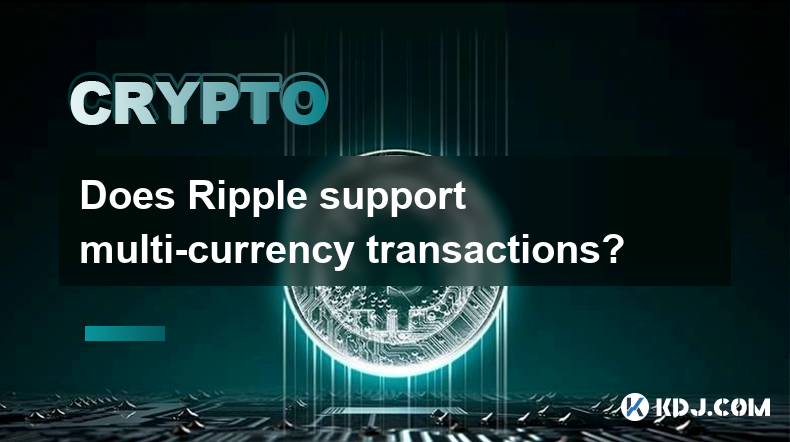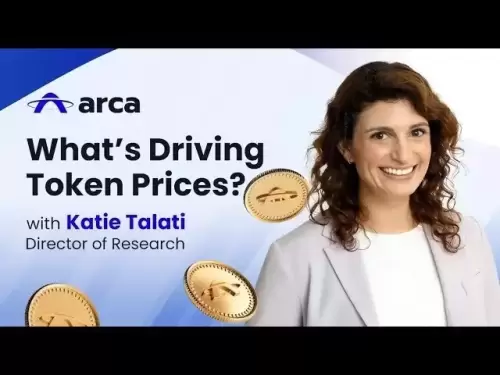-
 Bitcoin
Bitcoin $107,177.4639
-1.14% -
 Ethereum
Ethereum $2,491.2037
-0.61% -
 Tether USDt
Tether USDt $1.0002
0.01% -
 XRP
XRP $2.2429
1.26% -
 BNB
BNB $657.3356
0.28% -
 Solana
Solana $155.4695
1.22% -
 USDC
USDC $0.9999
0.00% -
 TRON
TRON $0.2807
1.56% -
 Dogecoin
Dogecoin $0.1651
-2.72% -
 Cardano
Cardano $0.5729
-1.27% -
 Hyperliquid
Hyperliquid $39.6884
-0.35% -
 Bitcoin Cash
Bitcoin Cash $507.4439
0.67% -
 Sui
Sui $2.7830
-4.69% -
 Chainlink
Chainlink $13.4283
-2.75% -
 UNUS SED LEO
UNUS SED LEO $9.0352
-0.48% -
 Avalanche
Avalanche $17.9622
-4.71% -
 Stellar
Stellar $0.2388
-1.01% -
 Toncoin
Toncoin $2.9152
-0.08% -
 Shiba Inu
Shiba Inu $0.0...01143
-4.04% -
 Litecoin
Litecoin $86.1768
-2.26% -
 Hedera
Hedera $0.1501
-1.98% -
 Monero
Monero $325.6175
4.22% -
 Polkadot
Polkadot $3.4095
-4.60% -
 Dai
Dai $1.0000
0.01% -
 Bitget Token
Bitget Token $4.5457
-1.85% -
 Ethena USDe
Ethena USDe $1.0002
-0.01% -
 Uniswap
Uniswap $7.1505
-3.76% -
 Aave
Aave $275.8099
-0.99% -
 Pepe
Pepe $0.0...09777
-6.00% -
 Pi
Pi $0.5071
-5.03%
Does Ripple support multi-currency transactions?
RippleNet facilitates cross-border payments, often involving currency conversions via gateways, but doesn't directly handle multiple currencies within a single transaction; XRP isn't mandatory.
Mar 14, 2025 at 12:00 am

Key Points:
- RippleNet, Ripple's payment network, facilitates cross-border transactions using various currencies, but not directly in a multi-currency transaction within a single transaction.
- While XRP is the native token of the Ripple ecosystem, it's not mandatory for transactions on RippleNet. Many transactions utilize other fiat currencies.
- RippleNet's focus is on enabling efficient and cost-effective transfers of value, not necessarily holding or converting multiple cryptocurrencies simultaneously within a single transaction.
- The functionality depends heavily on the specific participating financial institutions and their integration with RippleNet.
Does Ripple Support Multi-Currency Transactions?
The question of whether Ripple supports multi-currency transactions requires a nuanced answer. The short answer is: not directly in the sense of a single transaction involving multiple cryptocurrencies or a simultaneous exchange between several fiat currencies. RippleNet, Ripple's network for global payments, is designed to streamline cross-border transactions. However, its core functionality revolves around facilitating the transfer of value between two points, usually involving a conversion between fiat currencies.
RippleNet utilizes a network of financial institutions and gateways. These gateways act as bridges, converting between different currencies. For example, a payment originating in USD might be converted to XRP by the sending institution's gateway, sent across RippleNet, and then converted back to Euros by the receiving institution's gateway. While this involves multiple currencies, it's a series of linked transactions, not a single multi-currency transaction.
This process is facilitated by the use of Nostro accounts, which are bank accounts held by a bank in a foreign currency. These accounts allow banks to execute transactions in a foreign currency without needing to constantly convert currencies. RippleNet streamlines this process, reducing the need for correspondent banks and intermediary institutions, thereby lowering costs and improving speed.
The role of XRP, Ripple's native cryptocurrency, is often misunderstood in this context. While XRP can be used for transactions on RippleNet, it's not a mandatory requirement. Many transactions on RippleNet are executed using only fiat currencies, leveraging the network's infrastructure for speed and efficiency. The use of XRP often depends on the specific agreement between the financial institutions involved.
Ripple's focus is primarily on providing a fast, efficient, and transparent system for international payments. The network aims to reduce the friction associated with traditional correspondent banking, which often involves multiple intermediaries and significant delays. This efficiency gain is a key selling point, regardless of whether XRP is directly involved.
The scalability and speed of RippleNet allow for the rapid processing of large volumes of transactions. However, this speed is achieved by focusing on streamlining the transfer of value between two points, rather than creating a complex system for handling multiple currencies within a single transaction. The complexity of managing multiple currency exchanges simultaneously within one transaction would likely add significant overhead and potentially negate the efficiency benefits of RippleNet.
How does Ripple handle different currency pairs?
RippleNet doesn't inherently "handle" currency pairs in the same way a cryptocurrency exchange does. Instead, it relies on the gateways to perform the necessary conversions. Each gateway is responsible for converting the incoming currency into a suitable form for transfer across the RippleNet and then converting it back to the recipient's currency.
Can I send multiple cryptocurrencies in one Ripple transaction?
No, RippleNet isn't designed for sending multiple cryptocurrencies in a single transaction. The focus is on facilitating transfers of value, primarily involving fiat currencies, although XRP can be used.
Is XRP essential for transactions on RippleNet?
No, XRP is not mandatory for transactions on RippleNet. Many transactions utilize fiat currencies only, leveraging the network's infrastructure for improved speed and lower costs.
What are the benefits of using RippleNet for multi-currency payments?
While RippleNet doesn't handle multiple currencies within a single transaction, its benefits are evident in the overall process of multi-currency payments. It speeds up transaction times, reduces costs associated with intermediary banks, and increases transparency.
How do gateways manage currency exchange rates on RippleNet?
Gateways determine their own exchange rates, which are usually influenced by market conditions. These rates are applied during the conversion process, as the currency is transformed for transfer across the RippleNet.
What is the role of Nostro accounts in RippleNet's multi-currency operations?
Nostro accounts held by banks in various currencies facilitate the smooth conversion and transfer of funds within the RippleNet ecosystem. They are essential for managing different currencies within the network.
What are the limitations of RippleNet in handling multi-currency transactions?
RippleNet's main limitation concerning multi-currency transactions is the lack of direct, simultaneous handling of multiple currencies within a single transaction. Each currency conversion is a separate step in the overall process.
Disclaimer:info@kdj.com
The information provided is not trading advice. kdj.com does not assume any responsibility for any investments made based on the information provided in this article. Cryptocurrencies are highly volatile and it is highly recommended that you invest with caution after thorough research!
If you believe that the content used on this website infringes your copyright, please contact us immediately (info@kdj.com) and we will delete it promptly.
- Ruvi AI: Is This Token Gem Delivering Real ROI?
- 2025-07-01 06:30:11
- Bitcoin Price, Robinhood, & BTC Momentum: What's the Deal?
- 2025-07-01 06:30:11
- PNG Membership Soars to Record High: A Deep Dive into Growth and What It Means
- 2025-07-01 06:50:11
- Bitcoin's Breakout to $110K: What's the Real Deal, New York?
- 2025-07-01 06:50:11
- Valhalla Beckons: Norse Mythology Meets Blockchain Gaming
- 2025-07-01 07:10:11
- Valhalla Beckons: Norse Mythology Meets Blockchain Gaming
- 2025-07-01 06:55:12
Related knowledge

How to customize USDT TRC20 mining fees? Flexible adjustment tutorial
Jun 13,2025 at 01:42am
Understanding USDT TRC20 Mining FeesMining fees on the TRON (TRC20) network are essential for processing transactions. Unlike Bitcoin or Ethereum, where miners directly validate transactions, TRON uses a delegated proof-of-stake (DPoS) mechanism. However, users still need to pay bandwidth and energy fees, which are collectively referred to as 'mining fe...

USDT TRC20 transaction is stuck? Solution summary
Jun 14,2025 at 11:15pm
Understanding USDT TRC20 TransactionsWhen users mention that a USDT TRC20 transaction is stuck, they typically refer to a situation where the transfer of Tether (USDT) on the TRON blockchain has not been confirmed for an extended period. This issue may arise due to various reasons such as network congestion, insufficient transaction fees, or wallet-rela...

How to cancel USDT TRC20 unconfirmed transactions? Operation guide
Jun 13,2025 at 11:01pm
Understanding USDT TRC20 Unconfirmed TransactionsWhen dealing with USDT TRC20 transactions, it’s crucial to understand what an unconfirmed transaction means. An unconfirmed transaction is one that has been broadcasted to the blockchain network but hasn’t yet been included in a block. This typically occurs due to low transaction fees or network congestio...

How to check USDT TRC20 balance? Introduction to multiple query methods
Jun 21,2025 at 02:42am
Understanding USDT TRC20 and Its ImportanceUSDT (Tether) is one of the most widely used stablecoins in the cryptocurrency market. It exists on multiple blockchain networks, including TRC20, which operates on the Tron (TRX) network. Checking your USDT TRC20 balance accurately is crucial for users who hold or transact with this asset. Whether you're sendi...

What to do if USDT TRC20 transfers are congested? Speed up trading skills
Jun 13,2025 at 09:56am
Understanding USDT TRC20 Transfer CongestionWhen transferring USDT TRC20, users may occasionally experience delays or congestion. This typically occurs due to network overload on the TRON blockchain, which hosts the TRC20 version of Tether. Unlike the ERC20 variant (which runs on Ethereum), TRC20 transactions are generally faster and cheaper, but during...

The relationship between USDT TRC20 and TRON chain: technical background analysis
Jun 12,2025 at 01:28pm
What is USDT TRC20?USDT TRC20 refers to the Tether (USDT) token issued on the TRON blockchain using the TRC-20 standard. Unlike the more commonly known ERC-20 version of USDT (which runs on Ethereum), the TRC-20 variant leverages the TRON network's infrastructure for faster and cheaper transactions. The emergence of this version came as part of Tether’s...

How to customize USDT TRC20 mining fees? Flexible adjustment tutorial
Jun 13,2025 at 01:42am
Understanding USDT TRC20 Mining FeesMining fees on the TRON (TRC20) network are essential for processing transactions. Unlike Bitcoin or Ethereum, where miners directly validate transactions, TRON uses a delegated proof-of-stake (DPoS) mechanism. However, users still need to pay bandwidth and energy fees, which are collectively referred to as 'mining fe...

USDT TRC20 transaction is stuck? Solution summary
Jun 14,2025 at 11:15pm
Understanding USDT TRC20 TransactionsWhen users mention that a USDT TRC20 transaction is stuck, they typically refer to a situation where the transfer of Tether (USDT) on the TRON blockchain has not been confirmed for an extended period. This issue may arise due to various reasons such as network congestion, insufficient transaction fees, or wallet-rela...

How to cancel USDT TRC20 unconfirmed transactions? Operation guide
Jun 13,2025 at 11:01pm
Understanding USDT TRC20 Unconfirmed TransactionsWhen dealing with USDT TRC20 transactions, it’s crucial to understand what an unconfirmed transaction means. An unconfirmed transaction is one that has been broadcasted to the blockchain network but hasn’t yet been included in a block. This typically occurs due to low transaction fees or network congestio...

How to check USDT TRC20 balance? Introduction to multiple query methods
Jun 21,2025 at 02:42am
Understanding USDT TRC20 and Its ImportanceUSDT (Tether) is one of the most widely used stablecoins in the cryptocurrency market. It exists on multiple blockchain networks, including TRC20, which operates on the Tron (TRX) network. Checking your USDT TRC20 balance accurately is crucial for users who hold or transact with this asset. Whether you're sendi...

What to do if USDT TRC20 transfers are congested? Speed up trading skills
Jun 13,2025 at 09:56am
Understanding USDT TRC20 Transfer CongestionWhen transferring USDT TRC20, users may occasionally experience delays or congestion. This typically occurs due to network overload on the TRON blockchain, which hosts the TRC20 version of Tether. Unlike the ERC20 variant (which runs on Ethereum), TRC20 transactions are generally faster and cheaper, but during...

The relationship between USDT TRC20 and TRON chain: technical background analysis
Jun 12,2025 at 01:28pm
What is USDT TRC20?USDT TRC20 refers to the Tether (USDT) token issued on the TRON blockchain using the TRC-20 standard. Unlike the more commonly known ERC-20 version of USDT (which runs on Ethereum), the TRC-20 variant leverages the TRON network's infrastructure for faster and cheaper transactions. The emergence of this version came as part of Tether’s...
See all articles

























































































